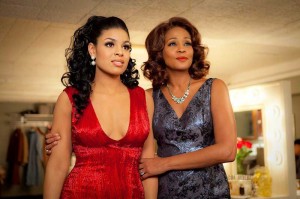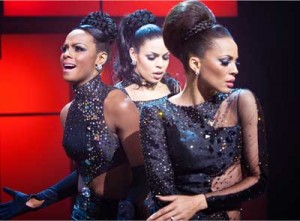
A remake of the 1976 film of the same name, Sparkle tells the story of three sisters who form a singing group in 1960s Detroit. It is a family drama that plays out against the glitz of Motown and the political and social tumult of the era.
In grading the film, part of the challenge was to capture the flavor and essence of Detroit in the 1960s, both its working-class neighborhoods and the many small clubs where Motown dreams were born. “Detroit in the Sixties was a vibrant industrial city,” said Michos. “It was the center of the music industry and the auto industry, the heartland of America.”
Certain combinations of bold, rich colors were typical of the era. Those color patterns, evident in costuming and production design, were accentuated and sharpened in postproduction. “The costumes and set design were spectacular,” Persichetti noted. “We built on that, but were careful not to push the colors into a direction that would have been unrealistic for the time. They used colors that you just don’t see anymore – olive green rugs and things like that – and we wanted to keep that true.”

While verisimilitude was important, Michos points out that Sparkle is not a documentary or a bio-pic, but rather a musical drama about stardom. It required an element of glamor, especially during performance sequences. “When we move in for a close-up, we want the performers to look their best,” he explained. “The scenes need to pop and the women should look like stars, because that’s what they are.”
Persichetti employed a variety of techniques to accentuate the star quality of the film’s lead performers. He used tools to isolate details to achieve consistency in skin tones and to tone down a colorful costume to keep it from distracting from an actress’s face. “Salim was insistent that the actresses always look beautiful,” he recalled. “The three central actresses have different skin tones and we adjusted somewhat for that. Our aim was to make them look their best, even when they were wearing curlers.”
Color played an important part in establishing the mood and aesthetics of the story. “The Detroit riots and the Vietnam War were part of the era of this film, so it has very serious undertones, but it is also the story of a girl band, so it has romance,” said Michos. “The film has a lot of arcs and we follow them with camera movement and with a color palette. With Colorworks’ help we were able to give this modestly-budgeted film a big-budget look.”





